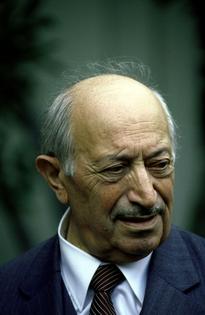Yom Kippur is coming soon – what does Judaism actually say about forgiveness?
Published in News & Features
The Jewish High Holidays are fast approaching: Rosh Hashana and Yom Kippur. While the first really commemorates the creation of the world, Jews view both holidays as a chance to reflect on our shortcomings, make amends and seek forgiveness, both from other people and from the Almighty.
Jews pray and fast on Yom Kippur to demonstrate their remorse and to focus on reconciliation. According to Jewish tradition, it is at the end of this solemn period that God seals his decision about each person’s fate for the coming year. Congregations recite a prayer called the “Unetanah Tokef,” which recalls God’s power to decide “who shall live and who shall die, who shall reach the ends of his days and who shall not” – an ancient text that Leonard Cohen popularized with his song “Who by Fire.”
Forgiveness and related concepts, such as compassion, are central virtues in many religions. What’s more, research has shown that it is psychologically beneficial.
But each religious tradition has its own particular views about forgiveness, as well, including Judaism. As a psychologist of religion, I have done research on these similarities and differences when it comes to forgiveness.
Several specific attitudes about forgiveness are reflected in the liturgy of the Jewish High Holidays, so those who go to services are likely to be aware of them – even if they skip out for a snack.
In Jewish theology, only the victim has the right to forgive an offense against another person, and an offender should repent toward the victim before forgiveness can take place. Someone who has hurt another person must sincerely apologize three times. If the victim still withholds forgiveness, the offender is considered forgiven, and the victim now shares the blame.
The 10-day period known as the “Days of Awe” – Rosh Hashana, Yom Kippur and the days between – is a popular time for forgiveness. Observant Jews reach out to friends and family they have wronged over the past year so that they can enter Yom Kippur services with a clean conscience and hope they have done all they can to mitigate God’s judgment.
The teaching that only a victim can forgive someone implies that God cannot forgive offenses between people until the relevant people have forgiven each other. It also means that some offenses, such as the Holocaust, can never be forgiven, because those martyred are dead and unable to forgive.
In psychological research, I have found that most Jewish and Christian participants endorse the views of forgiveness espoused by their religions.
As in Judaism, most Christian teachings encourage people to ask and give forgiveness for harms done to one another. But they tend to teach that more sins should be forgiven – and can be, by God, because Jesus’ death atoned vicariously for people’s sins.
...continued













Comments